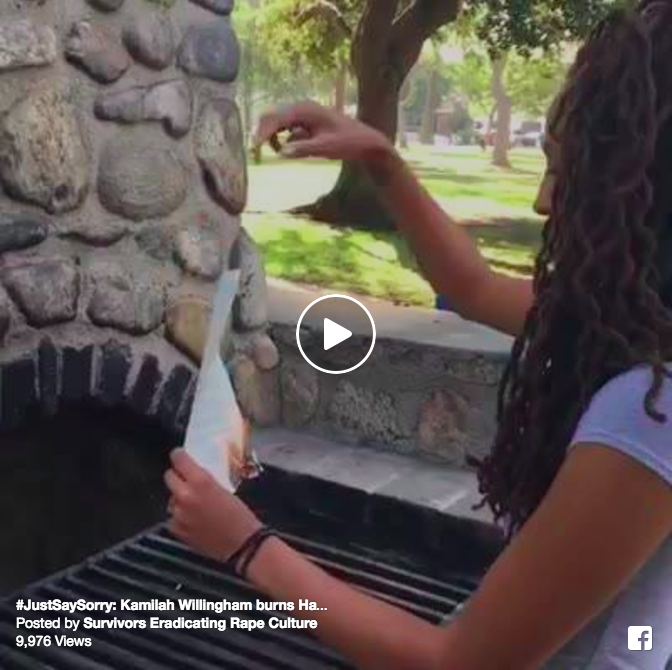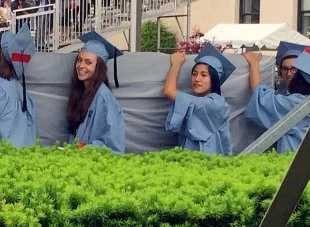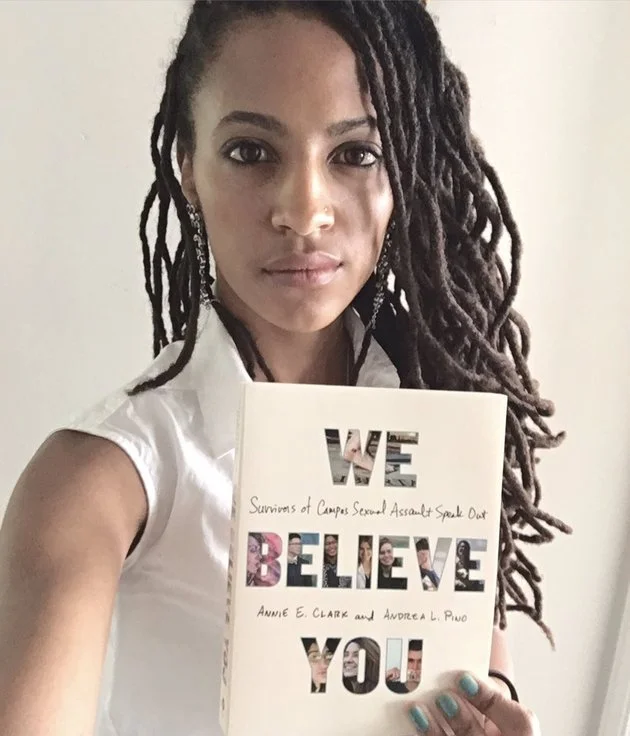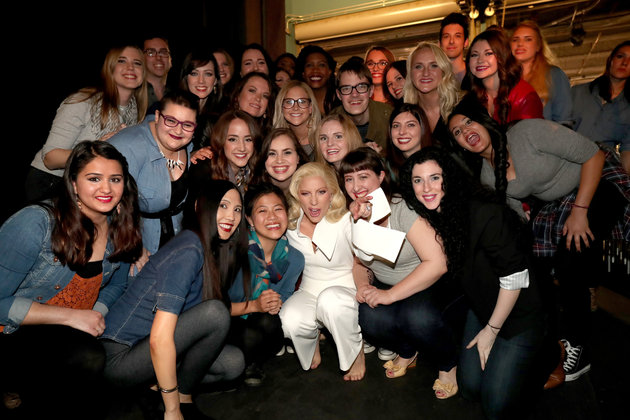Willingham, whose story was recently chronicled in the documentary The Hunting Ground, burned her Harvard Law School admissions letter Tuesday. But first, she decided to torch a pair of Harvard sweatpants. In a piece for the feminist magazine The Establishment, she said that Wanjuki’s video made her wish she’d kept more Harvard Law school attire so she could burn it now.
Now, some potential ticket buyers have already sworn off his movie months before its October debut in theaters. “You collaborated on a rape 17 years ago, and now you pull him in to make this film together,” says Kamilah Willingham, 30, one of the campus-assault survivors featured in the documentary “The Hunting Ground.” “I’m trying to picture a way this could turn out in which the film can still be celebrated. I can’t.”
“Some want to see their rapist rot in prison and have to register as a sex offender. And some people aren’t even ready to talk about it or confront what happened to them until it’s too late to report, or ever,” Willingham said.
“I want survivors to know that that’s okay, too. There is no ‘right’ way to survive sexual assault; there’s no duty to do anything but survive as best you can,” Willingham said.
"There is no single right way to heal," Willingham wrote. "There are many ways to be strong. Even if you're not as public as we are, even if you never told anyone about the abuse, know that you are not alone, you are strong because you're still here, and you are worthy and capable of healing."
“I didn’t really expect my school to apologize then, but I also didn’t expect my school to remain silent while 19 of the professors who presumably helped overturn my assailant’s sanction very publicly doubled down on his side, extending my rape trial into the court of public opinion and joining my assailant’s efforts to brand me as a vindictive, slutty liar,” Willingham wrote in an essay this week...
“Maybe there simply hasn’t been enough incentive for them to apologize,” Willingham said. “They don’t apologize for or acknowledge past failures, but we’re supposed to trust that they’re devoted to changing the administrative culture that has failed and hurt students survivors for so long? Nah. Sounds like institutional gaslighting to me. And gaslighting is an effective way to maintain control over the status quo in unbalanced relationships—which makes me think that schools won’t apologize as long as they think they can get away with it.
We talk about the Stanford case and how the problem extends far beyond Stanford with Amy Ziering, filmmaker of "The Hunting Ground," a documentary about sexual assault on college campuses, and Kamilah Willingham, one of the film’s subjects.
The case at Harvard Law that sent a chilling message: If you report a sexual assault, your professors may come after you publicly...
Willingham, featured in the campus rape documentary “The Hunting Ground,” said she’s “coming back swinging.”
Willingham said she was grateful to speak at the conference.
“I felt both immensely supported and heartbroken by the number of students who came to listen and who expressed how they related to my experience,” she wrote in an email...
The group of 50 sexual assault survivors was diverse in more ways than one...
For Kamilah Willingham, a law student at Harvard, the difficulty of achieving justice came when Harvard allowed her attacker to remain on campus despite what she viewed as clear evidence of his guilt. Willingham’s story is part of a larger inconsistency revealed by the film: The punishment levied for perpetrators of sexual assault pales in comparison to the punishment their victims face.
Willingham said that although she wasn’t surprised that faculty at Harvard would “shoot the messenger” and reject the idea that campus rape allegations are not being handled correctly, she didn’t expect they would choose to criticize her in particular...
...Rather than acknowledging their involvement in this unfair process, these Harvard Law faculty have instead tried to publicly discredit Willingham, even going so far as to team up with the assailant’s defense attorney to build a biased website against Willingham...
Imagine if our judges lashed out every time the media questioned their decision? These are law professors who are supposed to be training young lawyers on the importance of objectivity, factual accuracy, and respect for differing points of view. Instead, the vitriol in their attack on the filmmakers, and by extension Willingham, is unbecoming of the faculty of one of the most venerated schools of law.
“I feel crazy sometimes, reading this stuff,” Willingham said in a recent phone call, referring to Yoffe’s stories. “We wouldn’t have gone to the police or pushed so hard if it didn’t seem obvious. If we didn’t have what looked like written concessions from him.”
“He was a young black law student with a bright future?” she adds, parroting Yoffe. “Well, so was I.”
"There's been people out there for a long, long time trying to misrepresent the facts, to skew the statistics that continually come in of one in five, one in six sexually assaulted again and again," Dick says. For example, one Slate piece attempts to deconstruct the narrative of Kamilah Willingham, one of the survivors who speaks about her own assault in The Hunting Ground. "We weren't quite as aware of how vociferous [the response to the film] would be," Dick adds. Ziering, meanwhile, criticizes those she calls "rape denialists," saying simply, "There are facts. There are truths."

















